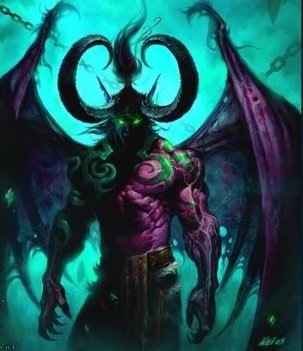Online gaming creates another self
 It's human nature to demonize what we don't understand.
It's human nature to demonize what we don't understand.
It is easy to assume that fantasy gaming is "bad" or "harmful." Rumors of Dungeons & Dragons luring susceptible kids to the dark side added to its geek creep factor back in the 1980s, forever linking the game to deviant and antisocial behavior. Indeed, it's human nature to demonize what we don't understand.
Such has been the case with MMOs (massively multiplayer online games) like World of Warcraft. Society still considers gamers to be as introverted, inarticulate, and emotionless as their armored avatars. News stories tell of how virtual relationships wreck real-life ones. Spouses are ignored or cheated on. Or even more heinous behavior occurs: virtual muggings, harassment, racial incidents.
A hierarchy emerges. It seems to many that even so-called "healthy" fantasy like reading Harry Potter books or sketching dungeons with pencils has to be better than fantasy like WoW, which numbs minds, sucks the imagination, and has no redeeming value.
But negative stereotyping of online gaming isn't fair. And if you delve into these games, you soon realize that MMOs and other computer games can offer something more powerful than escapism. They even change lives.
In my book, a woman named Phyllis Priestly talks about her relationship to online fantasy role-playing games like WoW. "You're in this world where it's life and death," she says. "Adrenaline rush. You kill. I'm really happy. It's changed the way I interact with people in the real world. I am less patient. I am more forthright. I blurt out what I think. It’s about [expletive] time. It’s like breathing for the first time."
She find in gaming a way to express a part of her personality that once lay hidden. Her gaming personality -- huntress, fighter, doer, killer -- leaks into her real world. All that rapid-fire picking off of wolves, quilboars, and troggs (the various monsters in the game) sharpens her reflexes, quickens her reaction time, and heightens her senses. She claims that gaming made her a better driver: The windshield became a rectangular viewfinder into a world of obstacles and foes. "I keep expecting something to jump out and kill me," she told me. "It's freed me up to say what I want to say." In her mind, she had become more confident, more daring, more connected.
Assertiveness training came through her experience with MMOs, not some corporate team building exercise. And through a "game," people can try out new attitudes, new personalities, new selves. And maybe, just maybe, find a way to export their fantasy experiences into their real lives, and become more like the ideal selves they want to be.
Ethan Gilsdorf is the author of the new travel memoir Fantasy Freaks and Gaming Geeks: An Epic Quest for Reality Among Role Players, Online Gamers, and Other Dwellers of Imaginary Realms.